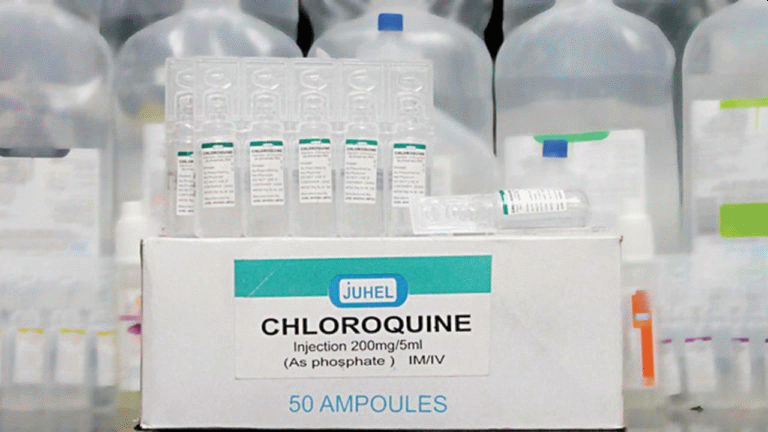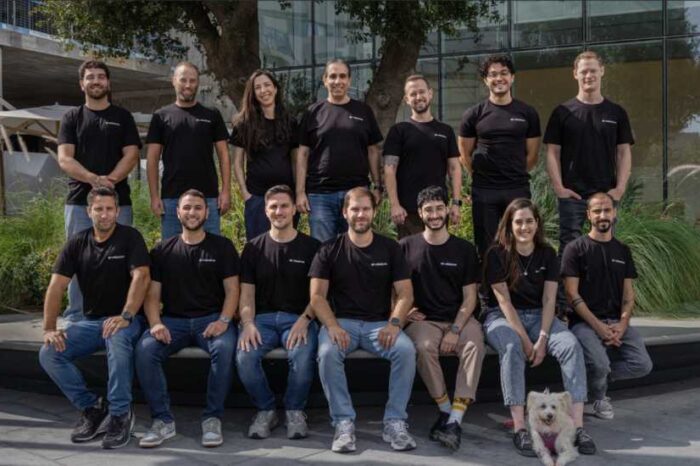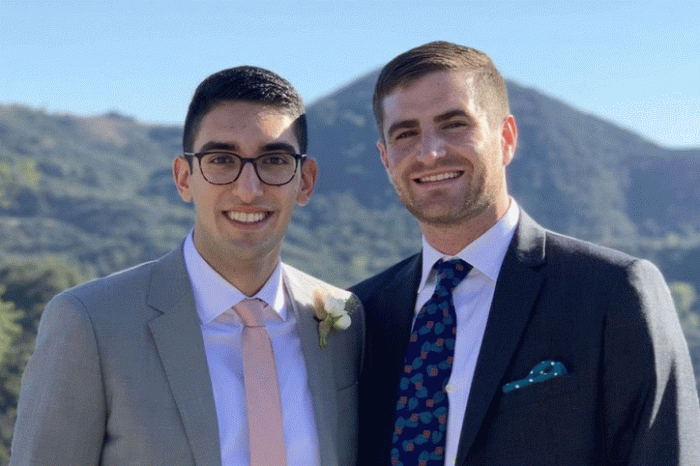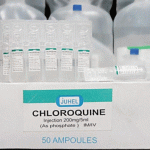New academic study reveals over-the-counter anti-malaria med Chloroquine may be highly effective at treating coronavirus

Update: Wednesday, March 18, 2020–New controlled clinical study conducted by doctors in France shows that Hydroxychloroquine cures 100% of coronavirus patients within 6 days of treatment (covidtrial.io)
The coronavirus pandemic has so far claimed 7,171 lives, with at least 182,603 coronavirus cases reported and 79,881 people recovered. Today, the NIH begins clinical trial of investigational vaccine for COVID-19. While the trial launched in record speed, public health officials have been stressing for weeks that a vaccine won’t be ready for 12 to 18 months in the best circumstances.
However, there is good news today that an existing anti-viral medication may be effective at treating the COVID-19. According to a new academic study presented by Thomas R. Broker, (Stanford PhD), James M. Todaro (Columbia MD), and Gregory J. Rigano, Esq., in consultation with Stanford University School of Medicine, UAB School of Medicine, and National Academy of Sciences researchers, shows that over the counter anti-malaria pills Chloroquine may be highly effective at treating coronavirus COVID-19.
In a research work published on Friday, recent guidelines from South Korea and China report that chloroquine is an effective antiviral therapeutic treatment against Coronavirus Disease 2019. “Use of chloroquine (tablets) is showing favorable outcomes in humans infected with Coronavirus including faster time to recovery and shorter hospital stay. US CDC research shows that chloroquine also has strong potential as a prophylactic (preventative) measure against coronavirus in the lab, while we wait for a vaccine to be developed. Chloroquine is an inexpensive, globally available drug that has been in widespread human use since 1945 against malaria, autoimmune and various other conditions,” the authors said.
According to research by the US CDC, chloroquine has strong antiviral effects on SARS coronavirus, both prophylactically and therapeutically. SARS coronavirus has significant similarities to COVID-19. Specifically, the CDC research was completed in primate cells using chloroquine’s well known function of elevating endosomal pH. The results show that “We have identified chloroquine as an effective antiviral agent for SARS-CoV in cell culture conditions, as evidenced by its inhibitory effect when the drug was added prior to infection or after the initiation and establishment of infection. The fact that chloroquine exerts an antiviral effect during pre- and post-infection conditions suggest that it is likely to have both prophylactic and therapeutic advantages.”
Background
The U.S. CDC and World Health Organization have not published treatment measures against Coronavirus disease 2019 (“COVID-19”). Medical centers are starting to have issues with traditional protocols. Treatments, and ideally a preventative measure, are needed. South Korea and China have had significantly more exposure and time to analyze diagnostic, treatment and preventative options. The U.S., Europe and the rest of the world can learn from their experience. According to former FDA commissioner, board member of Pfizer and Illumina, Scott Gotlieb MD, the world can learn the most about COVID-19 by paying closest attention to the response of countries that have had significant exposure to COVID-19 before the U.S. and Europe.[1]
As per the U.S. CDC, “Chloroquine (also known as chloroquine phosphate) is an antimalarial medicine… Chloroquine is available in the United States by prescription only… Chloroquine can be prescribed for either prevention or treatment of malaria. Chloroquine can be prescribed to adults and children of all ages. It can also be safely taken by pregnant women and nursing mothers.”[2]
CDC research also shows that “chloroquine can affect virus infection in many ways, and the antiviral effect depends in part on the extent to which the virus utilizes endosomes for entry. Chloroquine has been widely used to treat human diseases, such as malaria, amoebiosis, HIV, and autoimmune diseases, without significant detrimental side effects.”[3]
The treatment guidelines of both South Korea and China against COVID-19 are generally consistent, outlining chloroquine as an effective treatment.
Specifically, according to the Korea Biomedical Review, in February 2020 in South Korea, the COVID-19 Central Clinical Task Force, composed of physicians and experts treating patients agreed upon treatment principles for patients with COVID-19.[4] In China, the General Office of the National Health Commission, General Office of the State Administration of Traditional Chinese Medicine as well as a Multi-Center Collaborative Group of Guangdong Provincial Department of Science and Technology and Guangdong Provincial Health Comp and the China National Center for Biotechnology Development have established effective treatment measures based on human studies.[5]
According to their research (reported in Clinical Trials Arena),
“Data from the drug’s [chloroquine] studies showed ‘certain curative effect’ with ‘fairly good efficacy’ … patients treated with chloroquine demonstrated a better drop in fever, improvement of lung CT images, and required a shorter time to recover compared to parallel groups. The percentage of patients with negative viral nucleic acid tests was also higher with the anti-malarial drug… Chloroquine has so far shown no obvious serious adverse reactions in more than 100 participants in the trials… Chloroquine was selected after several screening rounds of thousands of existing drugs. Chloroquine is undergoing further trials in more than ten hospitals in Beijing, Guangdong province and Hunnan province.”[6]
Treatment Guidelines from South Korea[7]
According to the Korea Biomedical Review, the South Korean COVID-19 Central Clinical Task Force guidelines are as follows:
1. If patients are young, healthy, and have mild symptoms without underlying conditions, doctors can observe them without antiviral treatment;
2. If more than 10 days have passed since the onset of the illness and the symptoms are mild, physicians do not have to start an antiviral medication;
3. However, if patients are old or have underlying conditions with serious symptoms, physicians should consider an antiviral treatment. If they decide to use the antiviral therapy, they should start the administration as soon as possible:
… chloroquine 500mg orally per day.
4. As chloroquine is not available in Korea, doctors could consider hydroxychloroquine 400mg orally per day (Hydroxychloroquine is an analog of chloroquine used against malaria, autoimmune disorders, etc. It is widely available as well).
5. The treatment is suitable for 7 – 10 days, which can be shortened or extended depending on clinical progress.
Notably, the guidelines mention other antivirals as further lines of defense, including anti-HIV drugs.
Treatment Guidelines from China[8]
According to China’s Novel Coronavirus Pneumonia Diagnosis and Treatment Plan, 7th Edition, the treatment guidelines are as follows:
1. Treatment for mild cases includes bed rest, supportive treatments, and maintenance of caloric intake. Pay attention to fluid and electrolyte balance and maintain homeostasis. Closely monitor the patient’s vitals and oxygen saturation.
2. As indicated by clinical presentations, monitor the hematology panel, routine urinalysis, CRP, biochemistry (liver enzymes, cardiac enzymes, kidney function), coagulation, arterial blood gas analysis, chest radiography, and so on. Cytokines can be tested, if possible.
3. Administer effective oxygenation measures promptly, including nasal catheter, oxygen mask, and high flow nasal cannula. If conditions allow, a hydrogen-oxygen gas mix (H2/O2: 66.6%/33.3%) may be used for breathing.
4. Antiviral therapies:
… chloroquine phosphate (adult 18-65 years old weighing more than 50kg: 500mg twice daily for 7 days; bodyweight less than 50kg: 500mg twice daily for day 1 and 2, 500mg once daily for day 3 through 7) …
Additionally, the Guangdong Provincial Department of Science and Technology and the Guangdong Provincial Health and Health Commission issued a report stating “Expert consensus on chloroquine phosphate for new coronavirus pneumonia: … clinical research results show that chloroquine improves the success rate of treatment and shortens the length of patient’s hospital stay.”[9] The report further goes on to cite research from the US CDC from 2005 as well as research from the University of Leuven University in Belgium regarding chloroquine’s effectiveness against SARS coronavirus at the cellular level.[10]
Like the South Korean guidelines, notably, other antivirals (e.g. anti-HIV drugs) are listed as further lines of defense. The most research thus far has been around chloroquine.
Chloroquine as a prophylactic (preventative) measure against COVID-19[11]
According to research by the US CDC, chloroquine has strong antiviral effects on SARS coronavirus, both prophylactically and therapeutically. SARS coronavirus has significant similarities to COVID-19. Specifically, the CDC research was completed in primate cells using chloroquine’s well known function of elevating endosomal pH. The results show that “We have identified chloroquine as an effective antiviral agent for SARS-CoV in cell culture conditions, as evidenced by its inhibitory effect when the drug was added prior to infection or after the initiation and establishment of infection. The fact that chloroquine exerts an antiviral effect during pre- and post-infection conditions suggest that it is likely to have both prophylactic and therapeutic advantages.”
In conclusion, the study shows that chloroquine is effective in preventing SARS-CoV infection in cell culture if the drug is added to the cells 24 h prior to infection.
You can read the rest of the report here.




